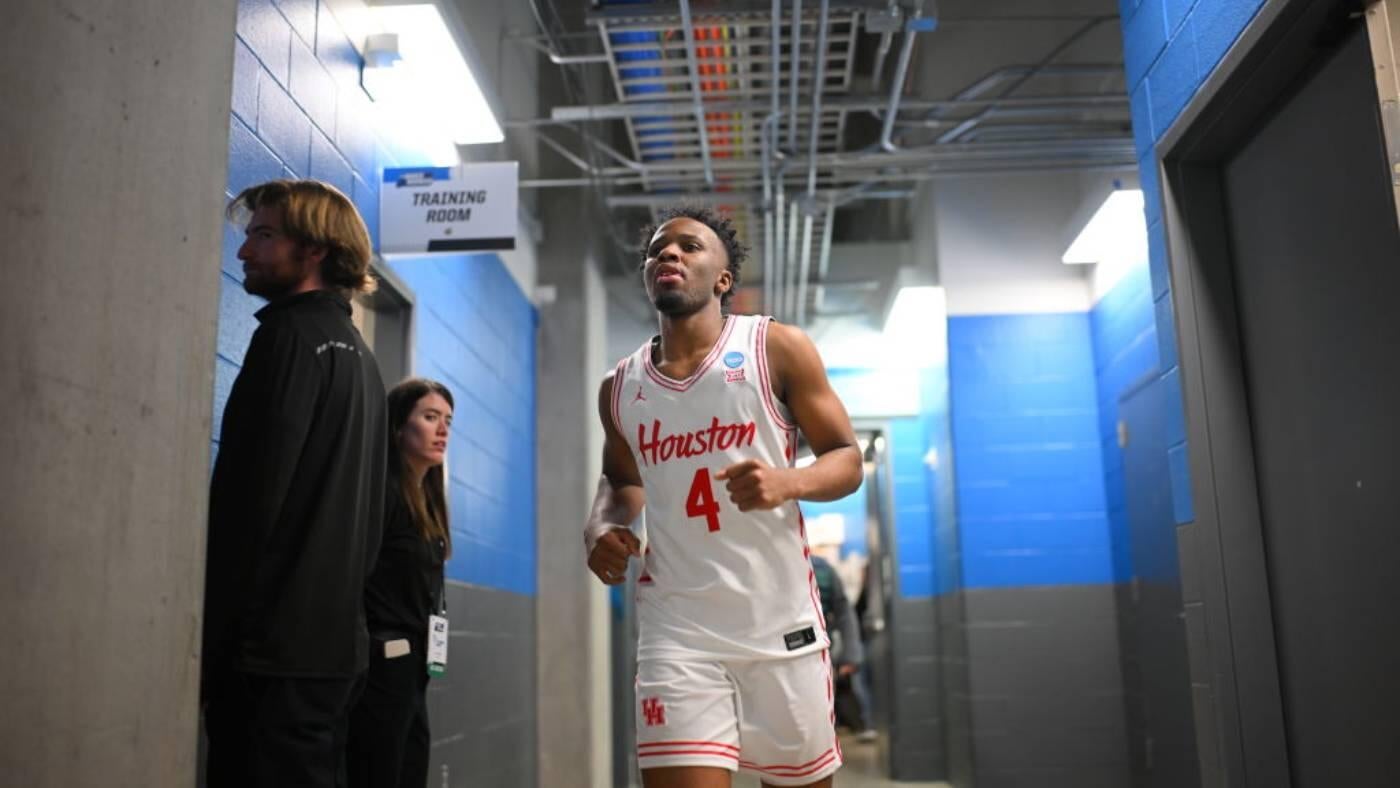SAN ANTONIO – The best part of watching Houston come to the cusp of a national title is how everything about their story feels like it comes straight out of a time capsule.
It’s a 69-year-old coach who mocks the idea of having a general manager, who tells meandering stories about sleeping in bunk beds as a counselor at Jud Heathcote’s basketball camp, who only took the job at Houston because they didn’t have a nepotism policy that prevented him from hiring his son and daughter to help run the program.
It’s a core of players who mostly started with Kelvin Sampson when they were 17 or 18, eschewed the transfer portal churn and stuck to the plan of development over dollars.
It’s a culture built by the simplest drills like one Sampson was asked about, where a ball hits the floor and two players do whatever is necessary – bruises and scratches be damned – to see who comes up with it first.
Heck, even the scandal that changed the course of Sampson’s career and put him on a trajectory toward Houston feels like a museum artifact from a different planet, something so foreign it almost seems like a parody.
“When you’re pressing 70, you look at things a lot differently,” Sampson said Sunday, a little more than 24 hours before his Cougars will play Florida for the NCAA men’s basketball national title. “Over the years, things kind of come full circle in some ways.”
How’s this for full circle?
Shortly after Monday night’s championship game ends, the winning coach will receive a trophy from NCAA president Charlie Baker, who will have spent much of his day monitoring a courtroom hearing in San Francisco, where a judge will review a settlement that allows schools to directly pay their athletes a share of the billions this enterprise generates. And the reason Baker might be handing that trophy to Houston is because 17 years ago, Sampson was fired from Indiana and banished from college basketball because he made too many phone calls to recruits.
That’s not to absolve Sampson of responsibility for what happened. The rules back then were what they were, the school responded the way schools usually responded in that era of sports, Sampson paid the price and eventually came back to college a better coach after six years as an assistant in the NBA.
The point is that it frames just how much college sports have changed, almost to the point of being unrecognizable in some ways from the period earlier in his career when it seemed like Sampson might be on his way to a national championship. And now that Sampson is here, as close to that Holy Grail as he’s ever been, ...







